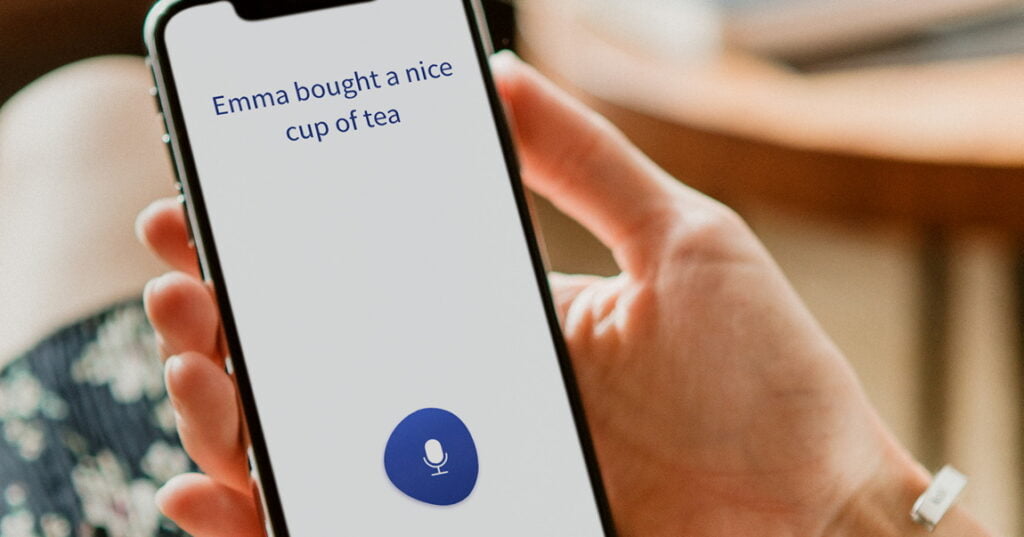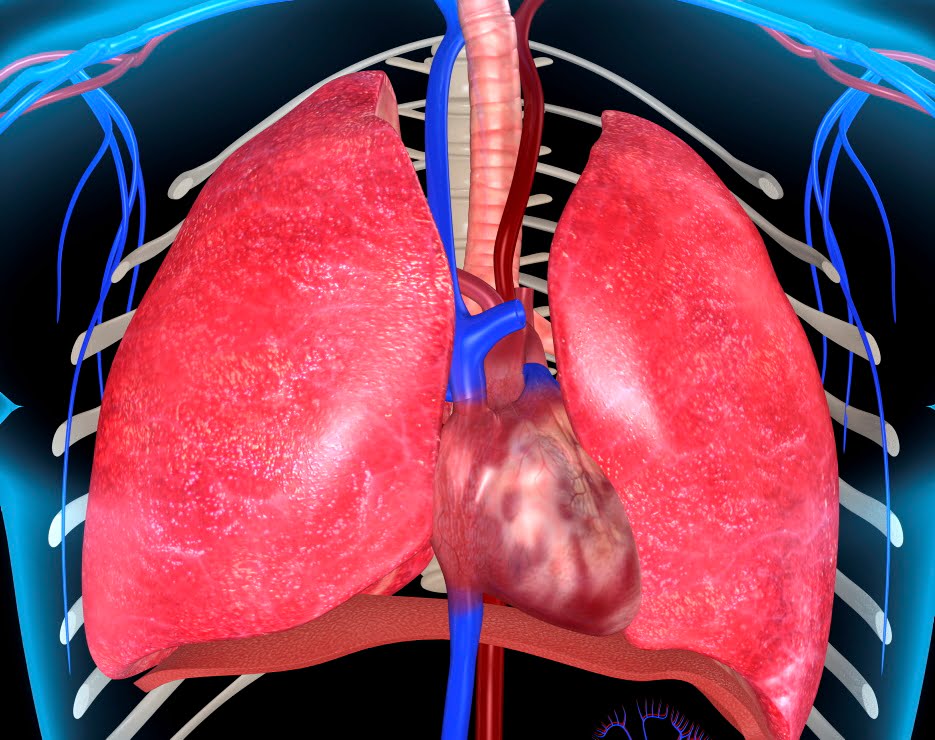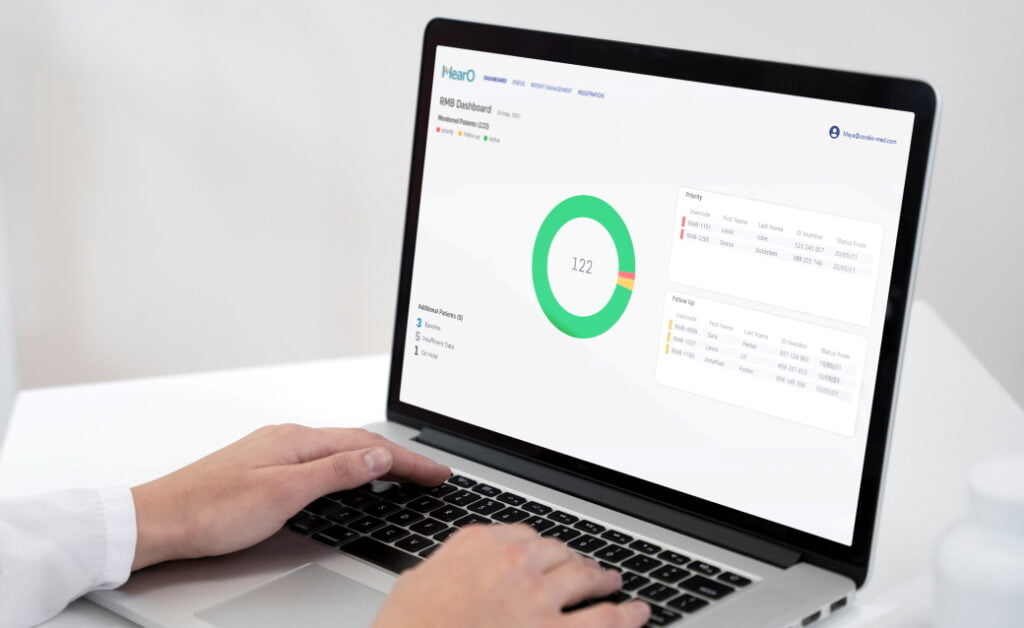Algorithm diagnoses condition from six sentences a day
Voice technology can now detect early signs of heart problems in cardiac patients, weeks before they’re even aware of any symptoms.
All they need to do is record themselves on a smartphone for 45 seconds a day. Then a super-sensitive algorithm “listens out” for problems.
The technology, developed by Israel-based Cordio Medical, is designed for patients suffering congestive heart failure, when fluid builds up within the heart and causes it to pump inefficiently.

They will already have been diagnosed with the chronic condition and will be taking medication to ease pressure on their hearts.
But they won’t be aware of excess fluid gathering in their heart and lungs until it’s too late, and they’re already suffering symptoms of a relapse.
Cordio’s voice app, called HearO, can pick up on tiny changes up to 18 days before they start feeling unwell, according to recent tests on patients in Israel.
That gives their doctors the chance to double the dose of diuretics – medication that lowers blood pressure – for a few days and avoid the trauma of a stay in the hospital.
“We’re probably one of the first companies in the world using speech to actually detect clinical conditions in humans,” says Tamir Tal, the company’s CEO.
“Speech carries a lot of personal information about us. When you talk to your mom just one sentence is enough for her to know how you feel.
“We’re using speech to give the physician something they can objectively use to determine a patient’s actual medical condition.”

A build-up of fluid in the lungs is the best sign that a patient is experiencing undiagnosed heart problems, but measuring it is something that eluded modern medical science, until now.
It doesn’t show up on any test or scan. Attempts to track it by measuring a patient’s pulse, breathing and weight throw up too many false positives.
Hi-tech wearable devices have had some success, but rely too heavily on patient compliance, says Tal.
And monitors that are surgically inserted into the heart provide accurate information but are invasive, expensive and unpopular.
But getting a patient to recite six sentences a day into their smartphone is easy, effective and accurate. That daily voice file is enough for the algorithm to know if something is amiss.
Our lungs push air through the larynx and are the place where the whole speech process begins, so any irregularities there will affect the way we speak, even if we can’t actually hear it.
“What we are doing is called low level speech processing, looking at very, very small changes in the lungs,” says Tal.
Sign up for our free weekly newsletter
Subscribe
“It’s like the sensor in a car’s engine that switches on a light on the dashboard if it starts filling with surplus fluid.”
Patients recite their sentences daily. One example in English is “Emma bought a nice cup of tea”, but the system caters for half a dozen languages and can readily be adapted for more.
Prof Ilan Shallom, who used to work at AudioCodes, one of the largest speech processing companies in the world, developed the real-time speech and voice analysis that detects early build-up of fluids.
His work allows HearO to listen out for the variations in sound from the vocal tract that are far too subtle for the human ear to distinguish.
Siri and Alexa analyze and understand human language but HearO is a more sophisticated kind of voice technology.
Patients record a baseline voice sample when they’re in good health, and the algorithm compares that with the daily sound file they send from their device.
A recent study among 180 patients at 10 medical centers in Israel found the system identified heart failure an average of 18 days before it occurred, based on that daily voice sample.
It made a correct diagnosis in 82 per cent of cases, compared with only 10 to 20 per cent achieved by monitoring a patient’s weight.
HearO is aimed at patients who would have died 20 years ago from a heart attack or other cardiac condition but who are routinely saved today using minimally invasive techniques. Their heart has, nonetheless, suffered a trauma, and is not functioning the way it should.

With a healthy heart, blood remains in a closed loop system. But if the heart is working at reduced capacity, then fluid – plasma, water and blood – can start accumulating in the body and eventually start filling the lungs.
It typically takes three weeks to a month before the patient will start feeling symptoms. By then it’s too late and they can already be quite seriously ill.
Even if the patient was in the hospital, the best MRI machines in the world can’t detect or image fluid, says Tal.
“Hence, the reason there is no gold standard in heart failure. Nobody knows when somebody is deteriorating only the physician caring, clinical examination with his status.
“There’s currently no examination that can tell you that is happening. Doesn’t matter, another blood test, not an imaging device, absolutely nothing.
“People don’t like to use medical devices designed to be used at home. They’re mainly designed for clinical efficacy, rather than the user’s happiness. But people are very happy to use their iPhone or Android.”
HearO will undergo two patient trials in Israel next year and has approval to be marketed early in 2023 in Spain, UK and Germany.
Related posts

Editors’ & Readers’ Choice: 10 Favorite NoCamels Articles

Forward Facing: What Does The Future Hold For Israeli High-Tech?

Impact Innovation: Israeli Startups That Could Shape Our Future




Facebook comments